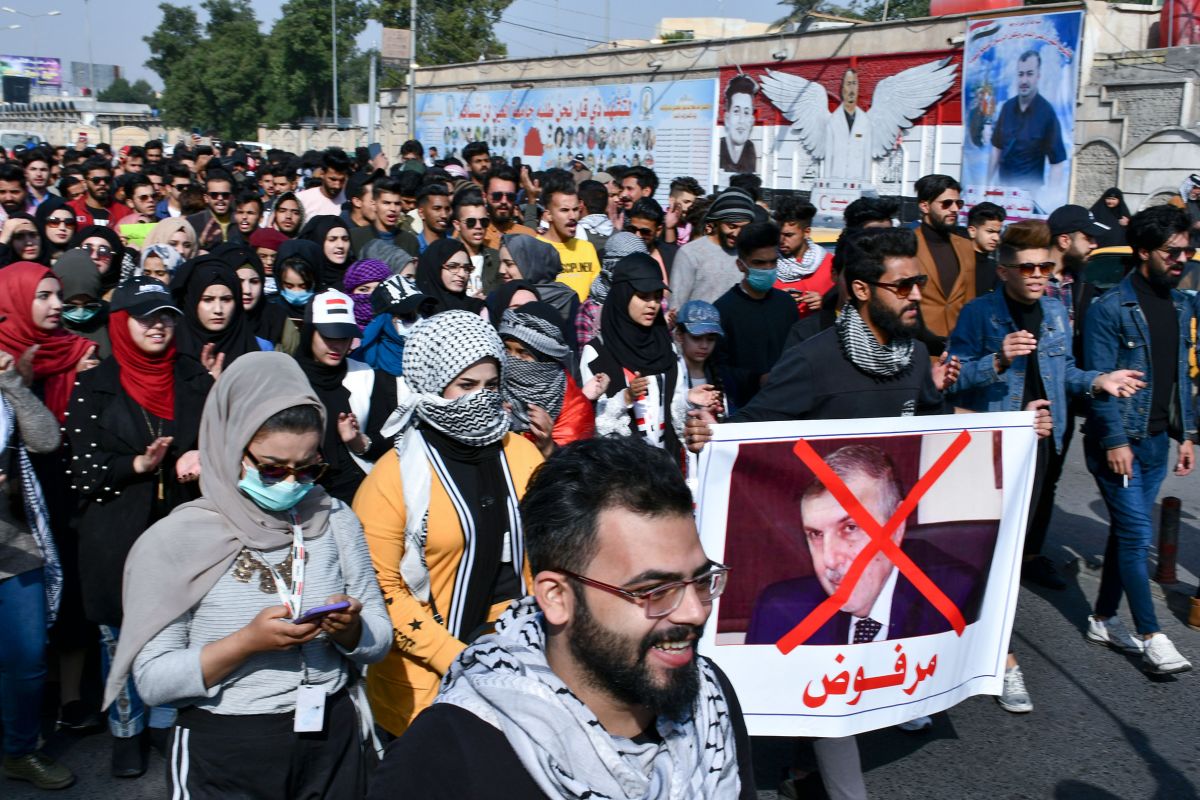The Americans never learn
The Arab Spring, which began in 2011, was dubbed as the starting point in removal of dictators in West Asia and North Africa.
Allawi was nominated on February 1 as a consensus candidate among Iraq’s fractured political parties but has only been publicly endorsed by Sadr, who has a cult-like following across the country.

An Iraqi anti-government protester lifts a banner depicting the new Prime Minister-designate Mohammad Allawi with the inscription "rejected", during a student demonstration in the southern city of Nasiriyah, on February 6, 2020. (Photo: AFP)
Iraq newly elected Prime Minister Mohammad Allawi announced on Saturday that he would submit his cabinet to a parliamentary vote within days, promising it would be stacked with “independents,” a key demand of influential cleric Moqtada Sadr.
The country’s capital and Shiite-majority south have been rocked by demonstrations since October demanding an end to corruption and a total overhaul of the ruling class.
Advertisement
Taking to Twitter, Allawi said, “We’re nearing a historic achievement: completing an independent cabinet of competent and impartial people, without the intervention of any political party”.
Advertisement
The Iraqi leader– two-time communications minister, has until March 2 to propose ministers to parliament, which must grant them a vote of confidence.
He pledged to “submit the names of these ministers within the current week”, which begins on Sunday in Iraq.
“We hope members of the parliament will respond and vote on them in order to start implementing the people’s demands.” Parliament is due to be in recess until mid-March and the speaker, Mohammed Halbusi, has not scheduled an extraordinary session.
Allawi was nominated on February 1 as a consensus candidate among Iraq’s fractured political parties but has only been publicly endorsed by Sadr, who has a cult-like following across the country.
On December 24, Thousands of protesters blocked roads and bridges in southern Iraq and condemned Iranian influence and political leaders who have missed another deadline to agree on a new prime minister.
Anti-government demonstrators burned tyres in major cities across the south, forcing the closure of schools and government buildings.
Earlier, 16 protesters were killed and several others injured after unidentified assailants opened fire on anti-government protesters.
Allawi pledged to pay compensation to the families of the 467 protests “martyrs” and to ensure proper medical care for the more than 9,000 others who have been injured.
The protest movement that began last October entered a new phase following the January 3 killing of Iranian Major General Qasem Soleimani in an American drone attack in Baghdad.
Since 2003, elections have used a complicated mix of proportional representation and list voting that favours major parties and the heads of lists.
Advertisement